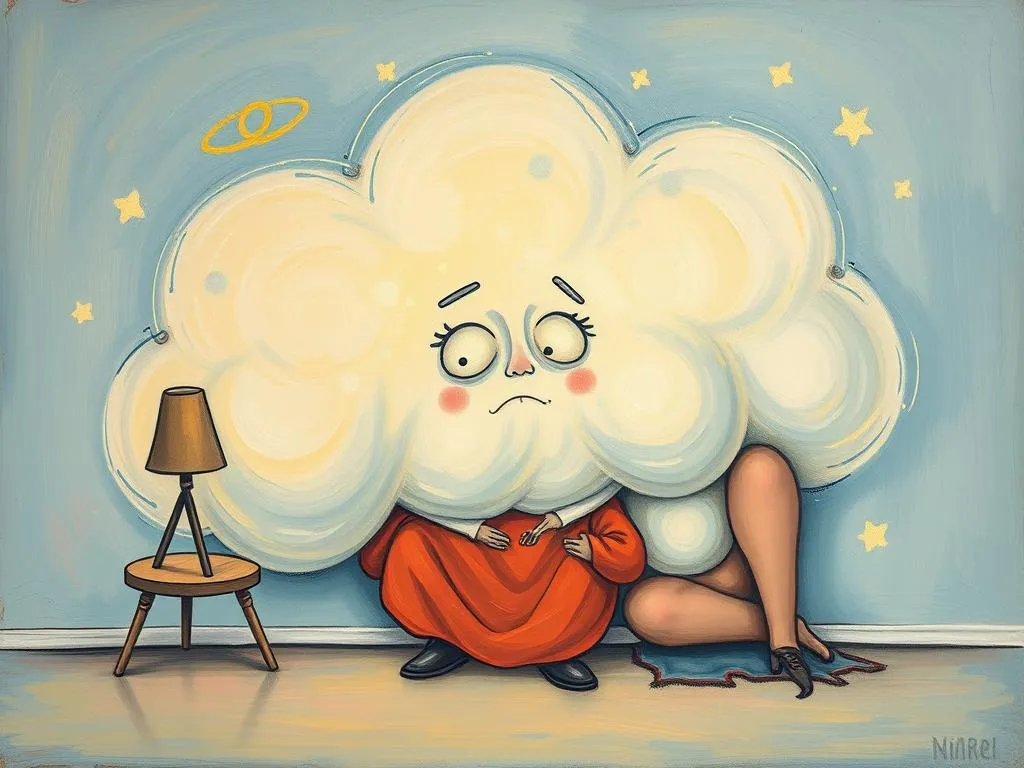
Introduction
Dreams have long fascinated humanity, serving as a window into our subconscious mind. Among the myriad of dream experiences, feelings of discomfort stand out due to their emotional intensity and perplexing nature. These dreams often leave us with a lingering sense of unease or anxiety, prompting us to question their significance. This article delves into the symbolism and meaning behind dreams that evoke discomfort, exploring the nuances of these emotional landscapes and offering insights into how they relate to our waking lives. Understanding why discomfort manifests in our dreams can not only provide clarity but also facilitate personal growth and self-reflection.
Symbolism and Meaning
The realm of dreams is rich with symbolism, where each element can represent different aspects of our psyche. Discomfort in dreams can arise from various symbols, each carrying its own meaning. One common symbol is falling, which often signifies a loss of control or feelings of insecurity. When you dream of falling, it might indicate that you are grappling with uncertainties in your life, be it in relationships, work, or personal ambitions.
Another prevalent symbol is being chased. This scenario usually points to avoidance—whether it’s an unresolved conflict, a fear, or a situation that you’re trying to escape. The pursuer in your dream may represent an aspect of yourself or an external issue that demands your attention. This feeling of being hunted can amplify discomfort, reflecting your inner struggle with confronting what you wish to evade.
Darkness is yet another symbol that often accompanies uncomfortable dreams. It can represent the unknown, fear, or hidden aspects of oneself that one is unwilling to acknowledge. Dreams set in dark environments might suggest that you are facing a situation in your life that feels overwhelming or ambiguous. The discomfort here stems from the fear of what lies beneath the surface, urging you to confront your fears head-on.
In addition, failure is a significant symbol that can trigger feelings of discomfort. Whether it’s failing an exam, missing a flight, or not being able to perform well, these dreams often reflect our anxieties about not meeting expectations—either our own or those imposed by society. This pressure can create a sense of unease, as the dreamer grapples with their self-worth and capabilities.
Different cultures and psychological theories offer varying perspectives on these symbols. For instance, from a Jungian perspective, discomfort in dreams may indicate that the dreamer is wrestling with the shadow self, or parts of their personality that are hidden or repressed. This theory emphasizes the importance of integrating these elements for personal growth. In contrast, Freudian analysis might interpret these dreams as manifestations of suppressed desires or unresolved conflicts, suggesting that our discomfort is tied to deeper psychological needs.
Key Scenarios and Variations
The discomfort you experience in dreams can manifest through various scenarios, each altering the narrative and emotional impact. For instance, dreaming about losing your voice can evoke powerful feelings of helplessness and frustration. This scenario may symbolize a struggle to express yourself or assert your opinions in waking life. The sensation of being silenced in your dream can amplify feelings of discomfort, mirroring real-life situations where you feel unheard or undervalued.
Another variation involves being unprepared for a significant event, such as giving a presentation or attending an important meeting. These dreams can induce anxiety and discomfort, reflecting your fears of inadequacy or the pressure to perform. The emotional weight of such scenarios often highlights the expectations you place upon yourself and can serve as a reminder to address these pressures constructively.
Isolation in dreams can also evoke discomfort, particularly when you find yourself in a scenario where you feel cut off from others or abandoned. This type of dream may indicate feelings of loneliness or a desire for connection in waking life. The emotional discomfort experienced in these dreams can prompt you to reflect on your social relationships and whether they fulfill your emotional needs.
Moreover, nightmares involving natural disasters or chaotic environments can stir profound unease. These scenarios often symbolize overwhelming stress or life changes that feel out of control. The chaos in your dreams may mirror the external pressures you face, urging you to confront and navigate through these turbulent feelings.
Finally, the appearance of strangers in your dreams can add to the discomfort. Encounters with unfamiliar faces may represent aspects of yourself that are not fully integrated or understood. The discomfort could stem from the fear of the unknown or the realization that there are parts of your identity that require exploration or acceptance.
Real-Life Connections and Takeaways
Understanding the discomfort in your dreams can provide valuable insights into your waking life. It serves as a prompt for self-reflection, inviting you to explore the underlying issues that may be causing anxiety or distress. To connect your dreams with real-life situations, consider keeping a dream journal. Record your dreams upon waking, noting the symbols, emotions, and scenarios present. This practice can help you identify patterns and recurring themes, offering a clearer picture of your inner landscape.
Moreover, take the time to reflect on any current stresses or conflicts in your life. Are there situations that you are avoiding? Are there areas where you feel out of control? Addressing these questions can illuminate why certain symbols or scenarios manifest in your dreams. This self-inquiry can lead to a deeper understanding of your discomfort and empower you to take constructive actions in your waking life.
Engaging in mindfulness practices can also help alleviate the discomfort associated with distressing dreams. Techniques such as meditation, deep breathing, or journaling can create a sense of calm and clarity, allowing you to process your thoughts and emotions more effectively. This practice can facilitate a more peaceful sleep, potentially reducing the frequency or intensity of uncomfortable dreams.
Additionally, consider seeking support from friends, family, or a mental health professional. Sharing your experiences and feelings can provide validation and insight, helping you to navigate the discomfort you encounter in your dreams. Sometimes, discussing your dreams with others can reveal perspectives you may not have considered, creating an opportunity for growth.
Lastly, embrace the discomfort as part of your journey. Dreams that evoke unease can serve as catalysts for change and self-discovery. They often point to areas in your life that require attention, urging you to confront your fears and insecurities. By acknowledging and working through these feelings, you can foster resilience and develop a greater sense of self-awareness.
Conclusion
Dreams of discomfort serve as profound reflections of our inner world, revealing our fears, anxieties, and unresolved conflicts. By analyzing the symbolism and exploring the variations of these dreams, we can gain insights into our waking lives that facilitate personal growth. Engaging in self-reflection and connecting these dreams to real-life situations can empower us to confront the discomfort and transform it into an opportunity for healing. As you navigate the complexities of your dreams, remember that discomfort is not merely a source of distress; it can also be a powerful guide toward understanding yourself on a deeper level.







